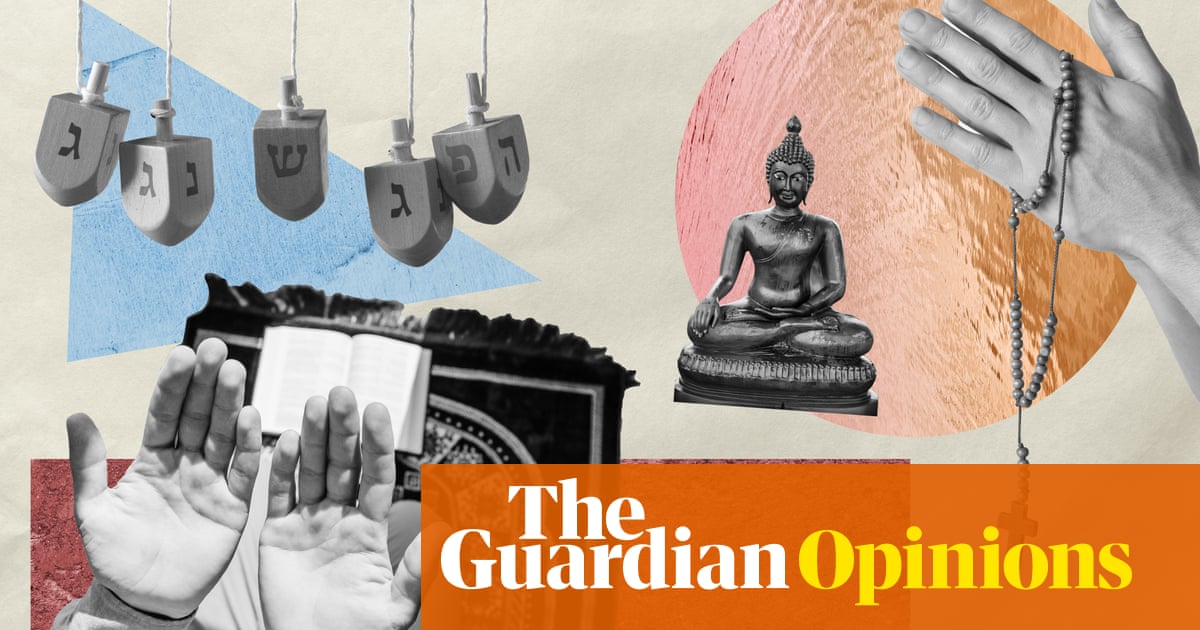
In planning my own type of spiritual reflection, I look for the threads which are common across religions: love, hope, service, transcendence
As a pastoral carer in an aged care setting, I start every day with a brief spiritual reflection. My colleagues come from different faith backgrounds and we gather to affirm our purpose, which is to make the residents feel truly seen.
We take it in turns to offer something from our spiritual traditions. My colleagues offer prayers, scripture and hymns. It is a privilege to be included.
When it is my turn, what should I offer? Like many of the residents I care for, I would describe myself as spiritual, but not religious. I was raised Catholic, then gave Buddhism a go, but now I belong to no religion.
In planning my spiritual reflection, I look for the threads which are common across religions: love, hope, service, transcendence. I turn on the music on my smartphone. “Ongmanibamai” sings the Mongolian artist Daiqing Tana. Tana’s words are a Mongolian translation of “om mani padme hum,” an Indian Buddhist mantra from the first century.
I turn down the volume of Tana’s chant to read from a poem by Angelus Silesius, the 17th century German mystic and priest who converted from Lutheranism to Catholicism. ‘God is a pure no-thing,’ I recite.
I jump from one religion to another, but this is how I experience spirituality. I call on whatever cultural expressions that ground me in service. Theologian Casper ter Kuile calls this “religious composting”, mixing together and building on old rituals to create something meaningful in a modern context.
I worry about cultural appropriation, taking from oppressed cultures without seeking permission, or without offering credit or compensation. I am especially careful regarding the knowledge of First Nations Australians, whose culture has been pillaged along with their land. If I ever wish to draw on First Nations knowledge, I check that the knowledge holders have given permission. I make sure to check and cite my sources, and I impose my own personal tithing system.
I also do my research, learning about how the traditions I draw on have “composted” each other. Buddhism is imbued with the local characteristics of the countries to which it has spread. For example, Chinese Buddhism incorporates the cultural importance of ancestors, while Tibetan Buddhism has an intricate cosmology.
Christianity, a derivative of Judaism, spread along ancient trade routes as far afield as India in the first centuries CE. Hinduism, its origins stretching back to 5,000BCE and the culture of a nomadic people who eventually settled the Indus valley, spread so far that the world’s largest Hindu temple complex is in Cambodia, more than 3700km from India.
Christianity, Islam and Judaism are believed to have been influenced by the Persian tradition of Zoroastrianism, with its monotheism and hope of salvation. Zoroastrianism itself shares proto-Indo-Iranian roots with Hinduism, and through Persian conquest and trade, may have influenced Ancient Greek and Roman worldviews.
For thousands of years, people have traded and fallen in love. They have argued, killed, stared at the stars together and wondered. They have shared and adapted a multitude of methods for connecting with mystery.
I play a little more of Tana’s song, then recite the words of Lao Tzu, known as the author of the fifth century BCE sacred Taoist text, the Tao Te Ching. “The Master doesn’t seek fulfilment,” I recite. “Not seeking, not expecting, she is present, and can welcome all things.”
I finish with the final chords of Tana. My colleagues offer their intentions and wait as I conduct my daily prostrations. These are my hybrid version of the Buddhist practices I could do back when my knees bent without making ungodly noises, and the rhythms of Catholic prayers from my childhood.
I come from a long line of humans who have dug their hands into the soil of a thousand places, then raised their eyes to wonder and offered thanks for the blessing of being alive. I respectfully combine and compost their traditions to grow new flowers. That is what dirt is for.
Jackie Bailey is the author of The Eulogy, winner of the 2023 NSW premier’s literary multicultural award. When not writing, Jackie works as a funeral celebrant, helping families navigate death and dying
